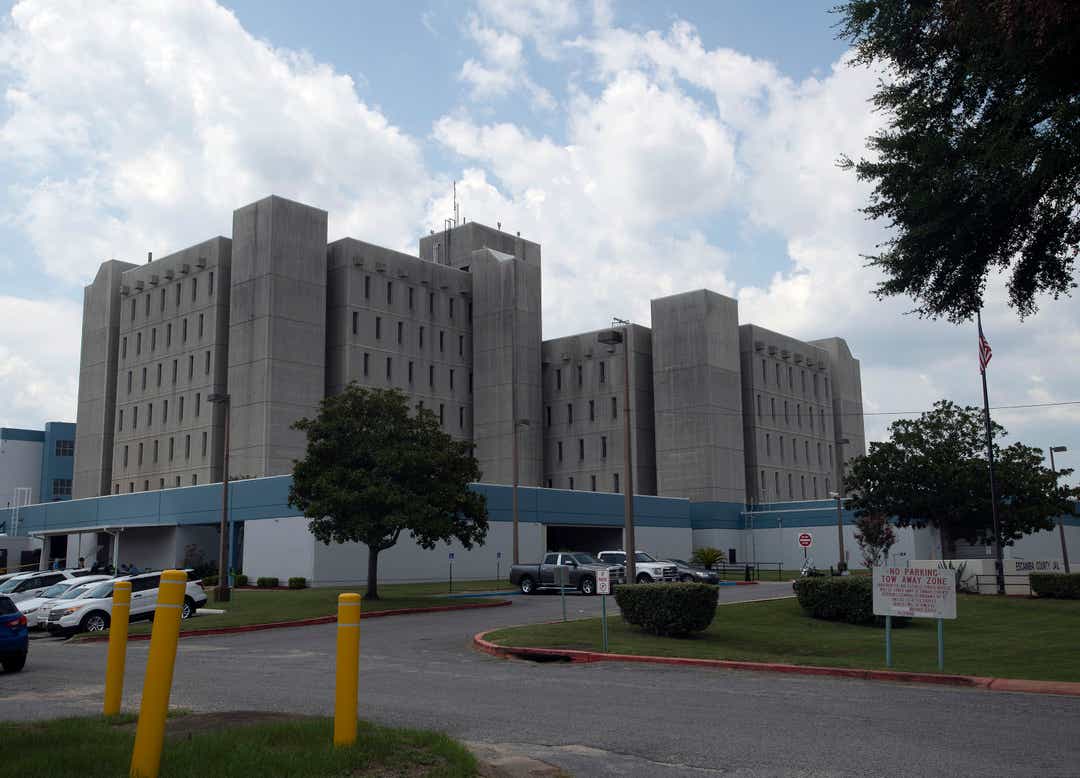A Pensacola city councilwoman has raised concerns about the potential health risks of keeping pregnant women in jail during the COVID-19 pandemic.
District 2 Councilwoman Sherri Myers said she recently learned there are eight expectant mothers in the Escambia County Jail. She found the news troubling because data indicates pregnant women face an elevated risk of hospitalization from COVID-19 even under normal circumstances, and detention centers are known hotspots for COVID-19 transmission, both locally and nationally.
Myers said she has been attempting to learn what steps the county is taking to safeguard these women, as well as to learn if it might be more appropriate to have the women released into some form of community supervision.
"My question is are we exposing a pregnant woman and her baby to what could potentially be a life-threatening situation over some non-violent crime?" Myers said. "That just seems, to me, to be unreasonable when you can put an ankle bracelet on somebody (and release them)."
► COVID-19 continues to spread at Escambia County Jail as 119 inmates now positive
► 10 new deaths due to COVID-19 reported in Escambia and Santa Rosa; total deaths at 219
When Myers communicated her worries to County Administrator Janice Gilley, Gilley replied in an email that the county shared her concerns and was following U.S. Centers for Disease Control and Prevention guidelines to help keep the women safe.
"During their stay with us at the Escambia County Jail, pregnant females go to scheduled OB visits along with scheduled high risk clinic visits," Gilley wrote. "As with all inmates, the pregnant females have been provided masks and soap along with education about COVID that is available on the kiosk for every inmate. We are also continuing to follow the guidelines recommended by the CDC for jails. In addition, we have a daily sick call in which the inmates can seek care from our Medical to address their issues."

Myers said she has tried to get more information — such as whether the women have been tested for COVID-19, if they are being properly socially distanced, if there is a danger associated with them breathing recycled air in the facility and what specific crimes the women are jailed for — but has not received answers.
"I would want to know if special populations, the most vulnerable people, are they being given any type of extra protections?" Myers said. "I consider pregnant women to be a vulnerable population, so I just think that it raises a lot more questions than what I got answered in that email."
Myers said statistically, most people in jails are there on fairly minor offenses but cannot afford to pay bond. She said if she could determine the identities of the pregnant women and the offenses they are charged with — assuming they pose no danger to the community — she would try to work with the court system to secure the women's release.
She encouraged family and friends of the incarcerated women to contact her at 850-982-9286 or sfmada@aol.com.
Coronavirus and the courts: Backlogs, budget cuts and COVID-19 loom large as NWFL courts eye return to trials
Bruce Miller, public defender for the First Judicial Circuit, said he could not disclose the identities of the inmates or their charges due to privacy concerns. He did note that his office's attorneys regularly and repeatedly schedule bond hearings for at-risk defendants and have successfully secured the release of a few pregnant women over the course of the pandemic.
Miller said his client base as a whole — individuals who cannot afford a private attorney — tend to be from vulnerable populations, such as the elderly and the poor. Miller agreed that most people who wind up in jail are there not because they were a threat to society, but simply because they lacked the resources to secure bond.
...tinyurlis.gdu.nuclck.ruulvis.netshrtco.de
مقالات مشابه
- UCLA در اخبار 4 ژوئن 2020
- یک نمای کلی از سال 2020 انتخابات سوم-نامزدهای حزب
- Chipot-yay: Pensacola اولین Chipotle تا قبل از تابستان
- کرم ضد آفتاب با پوشانندگی بالا
- After several delays, Pensacola Bay Bridge multi-use path finally set to open Monday
- پنج کارهای بسیار ساده ای که می توانید برای صرفه جویی در داروهای گیاهی انجام دهید
- شرکت صادرات و واردات کالاهای مختلف از جمله کاشی و سرامیک و ارائه دهنده خدمات ترانزیت و بارگیری دریایی و ریلی و ترخیص کالا برای کشورهای مختلف از جمله روسیه و کشورهای حوزه cis و سایر نقاط جهان - بازرگانی علی قانعی
- شرکت صادرات و واردات کالاهای مختلف از جمله کاشی و سرامیک و ارائه دهنده خدمات ترانزیت و بارگیری دریایی و ریلی و ترخیص کالا برای کشورهای مختلف از جمله روسیه و کشورهای حوزه cis و سایر نقاط جهان - بازرگانی علی قانعی
- شرکت صادرات و واردات کالاهای مختلف از جمله کاشی و سرامیک و ارائه دهنده خدمات ترانزیت و بارگیری دریایی و ریلی و ترخیص کالا برای کشورهای مختلف از جمله روسیه و کشورهای حوزه cis و سایر نقاط جهان - بازرگانی علی قانعی
- شرکت صادرات و واردات کالاهای مختلف از جمله کاشی و سرامیک و ارائه دهنده خدمات ترانزیت و بارگیری دریایی و ریلی و ترخیص کالا برای کشورهای مختلف از جمله روسیه و کشورهای حوزه cis و سایر نقاط جهان - بازرگانی علی قانعی